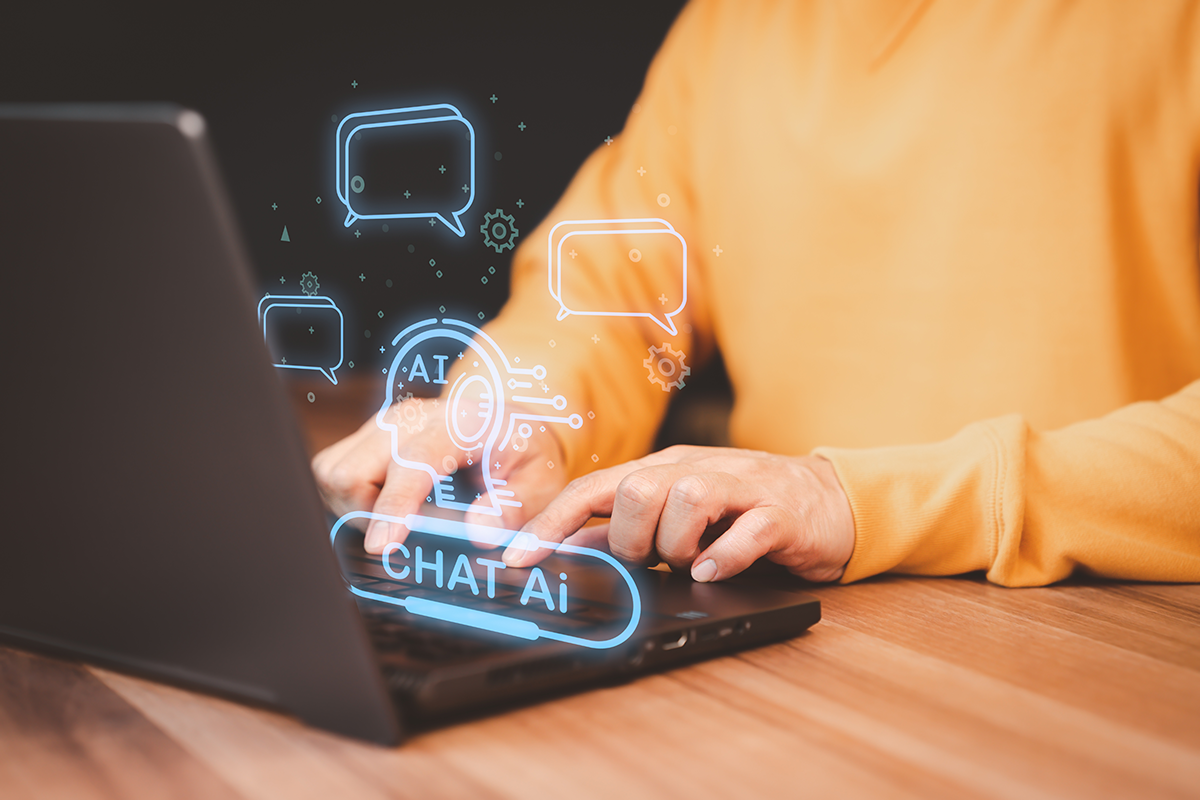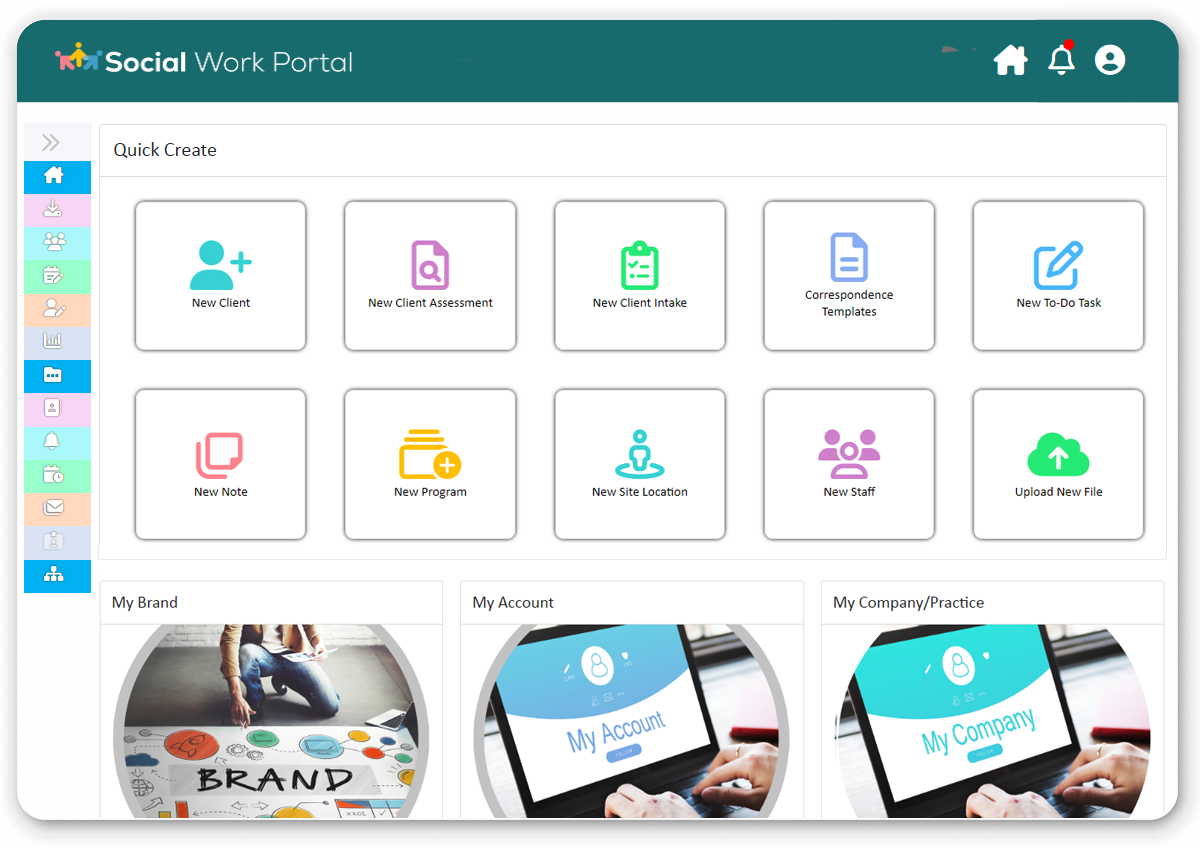AI for Good: Top Ways to Use AI Nonprofit Tools
In the heart of every nonprofit organization lies a noble mission—to create positive change, uplift communities, and champion causes that matter. But in an ever-evolving landscape, nonprofits face unique challenges: limited resources, growing demands, and the need to maximize impact.
Enter Artificial Intelligence (AI)—the digital ally that transcends mere automation. In 2024, AI isn’t just a buzzword; it’s a lifeline for nonprofits. By leveraging AI tools for nonprofits strategically, organizations can streamline processes, improve efficiency, and ultimately, achieve greater impact in their communities.

Buckle up as we explore five ways AI can propel your organization toward success in this modern technology age.
Watch a summary below:
Story Highlights
|
What is AI and How Can it Benefit Nonprofits?
AI refers to the development of intelligent systems that can learn and perform tasks that typically require human intelligence. Generative AI (GenAI) is an advanced form of AI that uses large language models to generate content (emails, images, ideas, etc.). GenAI is found in tools like ChatGPT, Google Gemini, and Microsoft Copilot.
In the context of AI nonprofit uses, AI can automate repetitive tasks, analyze data for deeper insights, and personalize interactions with donors and beneficiaries.
Next, we’ll discuss some of the benefits of using AI case management tools and AI in general for nonprofit organizations. Then, we’ll dive into some of the ways to use AI tools for nonprofits to help your organization thrive.
Do you have any questions about AI case management tools? Please reach out and let us know.
Benefits of AI Tools for Nonprofits
The potential of AI for nonprofits extends far beyond mere automation. Here’s a deeper dive into the specific benefits AI tools can bring to various aspects of your organization’s work.
Enhanced Efficiency and Productivity
Repetitive tasks like data entry, scheduling, and generating basic reports can be automated by AI, freeing up valuable staff time for more strategic endeavors like program development, donor cultivation, and direct client service.
Data-Driven Decision Making
AI excels at analyzing vast amounts of data, uncovering hidden patterns and trends that might be missed by the human eye. This empowers nonprofits to make data-driven decisions about resource allocation, program design, and fundraising strategies.
Improved Donor Engagement and Fundraising
AI can personalize the donor experience by segmenting donor bases, tailoring communication-based on interests and giving history, and even predicting potential high-value donors. This allows for more effective and impactful fundraising campaigns.
Greater Client Impact
Client and case management AI can analyze client data to identify risk factors and predict potential needs. This allows for early intervention and personalized service delivery, ultimately leading to better client outcomes.
Cost Savings
Streamlining processes and automating tasks with AI nonprofit tools can lead to significant cost savings. These savings can then be redirected toward core programs and services that directly benefit the community.
Accessibility and Scalability
Chatbots powered by AI can provide basic support to clients 24/7, making services more accessible and reducing the burden on human staff. AI nonprofit tools can also help organizations scale their outreach efforts by efficiently managing large volumes of data and communication.
Please let us know if you have any feedback or questions about great tools for case management, AI or otherwise!
Five Ways AI Tools for Nonprofits Can Help Your Organization
By harnessing the power of AI case management and other AI tools, nonprofits can streamline their operations and gain valuable insights and capabilities that allow them to maximize their impact. This helps them create a lasting positive change in the communities they serve.
Here are five specific ways AI tools for nonprofits can help organizations thrive.
1. Enhanced Fundraising and Donor Management:
- Donor Segmentation and Targeting: AI nonprofit tools can analyze donor data to identify patterns and segment donors based on their giving history, interests, and demographics. This allows for targeted fundraising campaigns with personalized messaging, increasing the likelihood of successful donations.
- Predictive Modeling: AI algorithms can analyze past fundraising data to predict future giving trends and identify potential high-value donors. This allows you to focus your efforts on the most promising prospects, maximizing fundraising efficiency.
- Chatbots and Virtual Assistants: AI-powered chatbots can provide 24/7 support to donors, answer frequently asked questions, and even schedule appointments with fundraising staff. This frees up valuable time for human staff to focus on building relationships with major donors.
2. Streamlined Case Management and Service Delivery:
- Automated Data Entry and Reporting: Case management AI can automate data entry tasks, such as recording client information and tracking program progress. This reduces the administrative burden for staff and allows them to dedicate more time to direct client support.
- Risk Assessment and Early Intervention: AI case management algorithms can analyze client data to identify potential risks or service needs. This allows for early intervention and proactive support, leading to better client outcomes.
- Personalized Service Delivery: Case management AI can personalize service delivery by tailoring interventions and recommendations to each client’s specific needs and circumstances.
3. Improved Communication and Outreach:
- Personalized Email Marketing: AI can personalize email marketing campaigns based on donor preferences and past interactions. This increases the likelihood of engagement and response rates.
- Social Media Optimization: AI tools for nonprofits can write social media posts based on topics and information you provide. This allows staff to increase social media volume and impact without having to increase staff hours.
- Chatbots for Client Support: AI-powered chatbots can provide basic support to clients, answer frequently asked questions, and schedule appointments. This frees up staff time and creates a more accessible support system for clients.
4. Data-Driven Decision Making:
- Data Analysis and Insights: AI can analyze vast amounts of data from various sources, providing deep insights into program effectiveness, fundraising trends, and client needs. This data-driven approach allows for more informed decision-making and strategic resource allocation.
- Predictive Analytics: AI can predict future trends and outcomes based on historical data. This allows nonprofits to anticipate challenges and proactively develop contingency plans.
- Performance Measurement and Evaluation: AI can automate data collection and analysis for program evaluation, allowing nonprofits to track progress and measure impact more efficiently.
5. Increased Efficiency and Cost Savings:
- Automation of Repetitive Tasks: Many time-consuming administrative tasks can be automated by AI nonprofit tools, freeing up valuable staff time for more strategic work.
- Improved Resource Allocation: AI-powered data analysis can help nonprofits identify areas where resources can be better allocated to maximize impact.
- Reduced Operational Costs: By automating tasks and streamlining processes, AI tools for nonprofits can help reduce operating costs and stretch limited resources further.
Where Can You Find AI Nonprofit Tools?
Whether you’re looking for AI case management tools or other AI nonprofit applications, this list should give you a good place to start.
Microsoft Copilot
One of the most robust AI tool offerings comes from Microsoft. The company has incorporated its Copilot AI into many tools, both familiar and new:
- PowerPoint
- Excel
- Word
- Outlook
- Teams
- Copilot for Finance
- Copilot for Sales
- Edge
- Windows 11
Google Gemini
Google’s AI platform may not have been first, but it’s shaping up to be one of the best for generating content. You’ll find Gemini capabilities in:
- Gemini on the web
- Gmail
- Google Docs
- Google Sheets
- Google Slides
ChatGPT
ChatGPT was the company that kicked off the AI frenzy. Beyond its original interface, it also has a Non-Profit Navigator, designed to help nonprofits with AI in many ways.
Important Considerations Before Implementing AI Nonprofit Tools
While AI offers a wealth of benefits, it’s crucial to approach its implementation thoughtfully. Here are some key considerations:
- Data Security and Privacy: Ensure robust data security measures are in place to protect sensitive donor and client information.
- Human-Centered Approach: AI case management and other uses should be seen as a tool to enhance human capabilities, not replace them. Nonprofits must maintain a human-centered approach to their work.
- Ethical Considerations: It’s essential to be mindful of potential biases in AI algorithms and ensure fair and ethical treatment of all stakeholders.
Conclusion: AI Nonprofit Tools to Expand Your Capabilities
AI is not a magic bullet, but it holds immense potential to transform the way nonprofits operate. By strategically integrating AI into their operations, nonprofits can achieve greater efficiency, improve decision-making, and ultimately, make a more profound impact on the communities they serve.
As the field of AI continues to evolve, nonprofits that embrace its possibilities will be well-positioned to thrive in the digital future.
Nonprofit Case Management Tools to Automate Your Work
Having easy-to-use tools that work for your nonprofit’s needs is important. The Case Management Hub platform allows you to leverage built-in assessments, add client notes, schedule appointments, and much more.
Learn how this social services software streamlines your work by signing up for a free, no-risk trial.
Sign up for a free trial today.
FAQ: AI Tools for Nonprofits
What is AI?
Artificial Intelligence (AI) refers to the development of intelligent systems that can learn and perform tasks that typically require human intelligence. Generative AI (GenAI) is an advanced AI that uses large language models to generate content (emails, images, ideas, etc.).
What are some of the benefits of using AI tools for nonprofits?
Here are some of the benefits AI tools can bring to various aspects of a nonprofit organization's work:
Enhanced Efficiency and Productivity
Data-Driven decision-making
Improved Donor Engagement and Fundraising
Greater Client Impact
Cost Savings
Accessibility and Scalability
Where can I find AI nonprofit tools?
A good place to begin is with popular AI tools from well-known companies. You can leverage AI in platforms like ChatGPT, Google Gemini, and Microsoft Copilot.
Note: Content on this website (socialworkportal.com) is copyrighted and protected under applicable copyright laws. Unauthorized reproduction, distribution, or use of any content from the website, without explicit written permission, is strictly prohibited. Read: Terms of Use.
Social Work Portal Disclaimer: Social Work Portal is not a social work agency and we do not refer social workers. This web site is provided for educational and informational purposes only and does not constitute providing medical advice or professional social and healthcare services. The information provided should not be used for diagnosing or treating a health problem or disease, and those seeking personal medical advice should consult with ... Read our full disclaimer here: Social Work Portal Disclaimer.

Image sources: Stock.adobe.com







